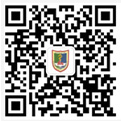Forensic medicine is a branch of forensic science that applies medical science, biology and other science theories and techniques to study and solve forensic medical problems in judicial practice. In this curriculum, students will gain general ideas about examining the deceased and related genetic evidence to provide evidence for exposing the truth of a possible crime; how to conduct scientific examinations and appraisals on certain civil cases such as sexual function status, paternity relationship, labor ability and degree of injury; and common processes of identifying the deceased or cases involving suspected drugs (poisons). By provide scientific evidence through forensic examinations, forensic examiners can assist investigations in criminal and civil cases, and provide medical information for the development of relevant laws. Forensic medicine is a practically applied science, which requires medical, legal, physical, chemical and theories and technologies from other subjects. Thus, the previous medical basic courses such as anatomy, pathology, histology and natural science knowledge are required for medical students undertaking the course. In this curriculum, principle teaching methods will be combinations of computer multimedia courseware, interactive demonstration and class discussion. More readings and self-study after class are also required for students.



